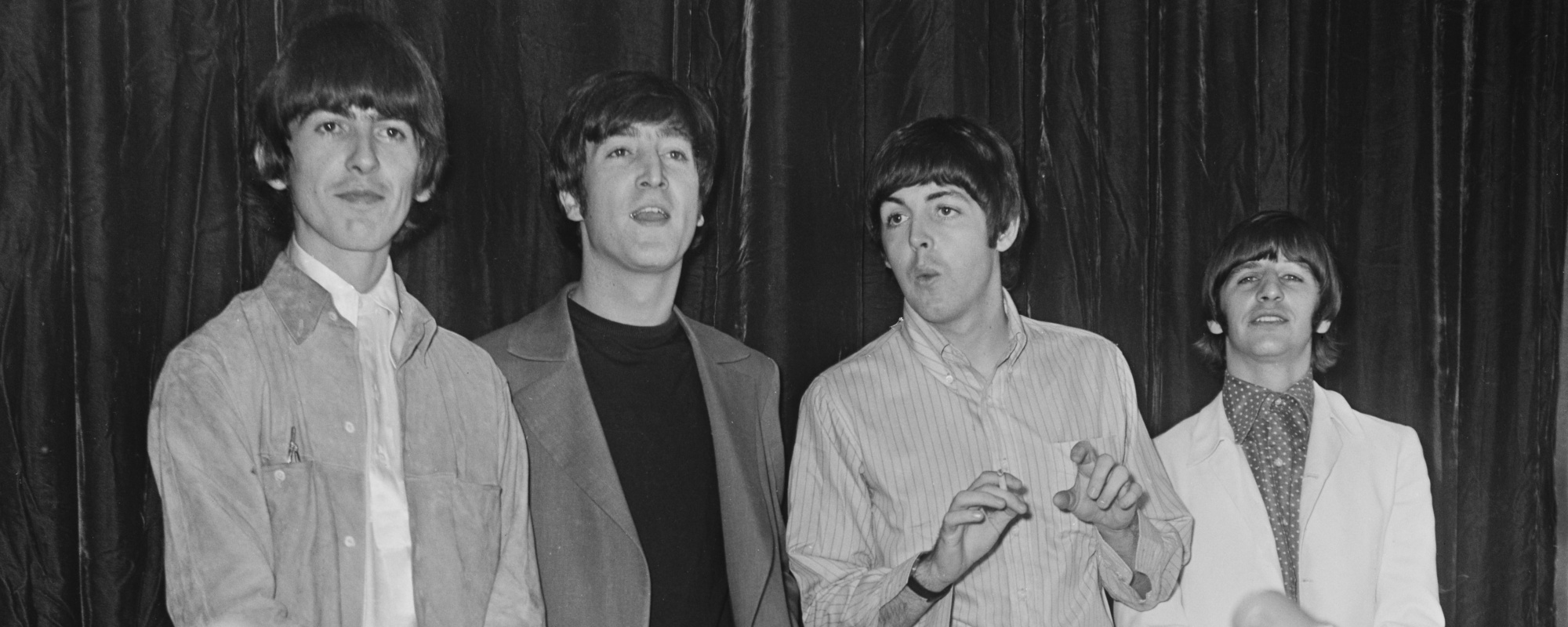While it’s hard to imagine radio stations banning a lighthearted Beatles track like “Ob-La-Di, Ob-La-Da,” heartbreaking reasons compelled them to do so over three decades after the band first released their track. (Although the song had been controversial for quite a while beforehand.)
Videos by American Songwriter
The debate on whether “Ob-La-Di, Ob-La-Da” was a good song divided Beatles fans for decades. Some fans loved the tune’s breezy optimism, particularly those who enjoyed Paul McCartney’s cleaner, straightforward material. Others took the same stance as John Lennon, who had once called the track “granny s**t.”
But in the end, it would be a national tragedy, not the song’s highly contested credibility, that would be its on-air downfall.
Why Radio Stations Banned “Ob-La-Di, Ob-La-Da”
At first glance, the Beatles’ “Ob-La-Di, Ob-La-Da” is nothing more than a hopeful ode to life’s persistence. Ob-la-di, ob-la-da, life goes on brah, the refrain repeats throughout the song. La, la, how their life goes on. The song was innocent enough—until the terror attacks of September 11, 2001, painted the unassuming track in a far different light.
The 1968 track was one of several Beatles tunes that Clear Channel Communications (now iHeartMedia) included in an infamous memorandum that urged radio stations to ban certain songs following the national tragedy for various reasons. Other Beatles songs included “A Day in the Life,” “Lucy in the Sky With Diamonds,” and “Ticket to Ride.”
“Ob-La-Di, Ob-La-Da” made it on the list, ironically, due to its happy-go-lucky attitude. Per CCC’s controversial memorandum (which, decades later, some argue never actually existed), the refrain Life goes on, brah could’ve been offensive to a nation mourning the deadliest terrorist attack in the country’s entire history.
The Controversy Surrounding The CCC Memo
The 2001 terrorist attacks sparked a surge of patriotism in nearly every facet of American life, including music. A myriad of songs written about 9/11 began to permeate the airwaves at the same time radio stations started to avoid playing songs that had lyrics pertaining to death, suicide, anti-patriotic rhetoric, airplanes, skies, and so on. Some radio stations even stopped playing songs with extreme optimism or hopefulness, like Louis Armstrong’s “What a Wonderful World.” (“Ob-La-Di, Ob-La-Da” was on the list due to its falling in the latter category.)
But depending on who you ask, the memo in question never truly existed. Bob Buchmann, former program director of Clear Channel-owned radio station WAXQ, told the Washington Post that the no-play list containing over 160 songs was a big misunderstanding. “It was one program director who hit ‘reply all.’ One person hit ‘reply all’ on a list of songs that [they] thought could cause unnecessary adverse feelings at the time. That person was not on the vice president or higher level.”
Nevertheless, even a suggestive email from a parent broadcast company was enough for many lower-level DJs to take the list as a direct order. Greg Brady, another former radio host of a Clear Channel station, told the Post, “[It] probably was the proper thing at that time, not to rock the boat, and it didn’t seem like something that was worthy of poking the bear—playing the song just to get a reaction. I’m sure a lot of DJs felt the same way.”
Considering Lennon’s murder took place just over two decades before the 9/11 attacks, one can only assume what he would’ve thought about his bandmate’s “granny s**t” song being controversial enough to get a spot on a radio ban list, compulsory or not.
Photo by Express/Archive Photos/Getty Images













Leave a Reply
Only members can comment. Become a member. Already a member? Log in.